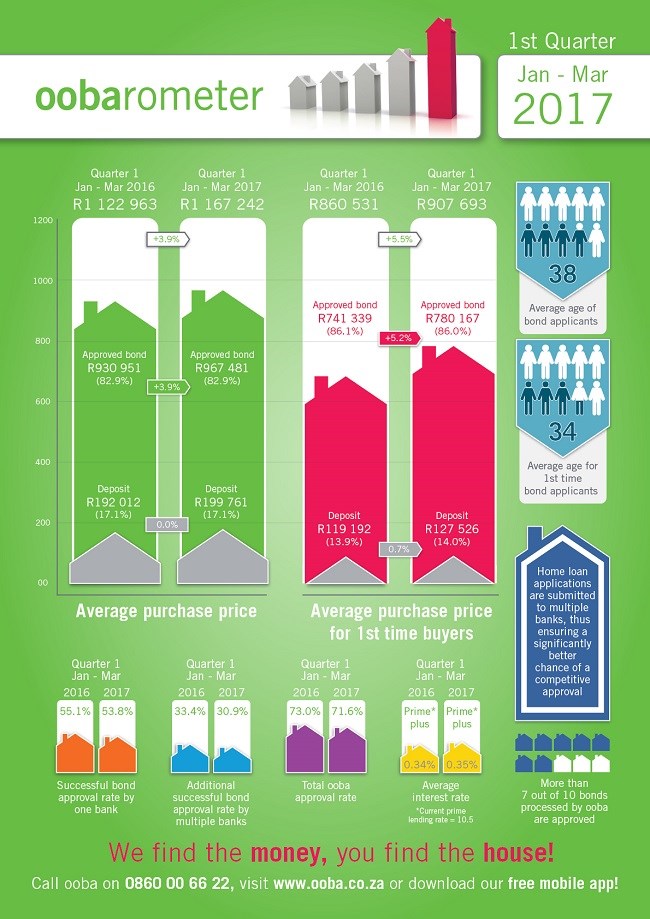Property statistics from bond originator, ooba, show that house price growth has slowed in the first quarter of 2017 when compared to the same period in 2016. Price growth in the market for Q1 2017 stands at just 3.9%.
Fewer first-time buyers entering the market
The year on year purchase price for first-time buyers has increased to 5.5% which signifies ongoing demand from this segment. The economic downturn is however beginning to take a toll on this group – the percentage of applications processed by ooba from first-time buyers is down to 46% from 53% a year ago.
ooba’s home loan statistics paint a similar picture:
- ooba’s average bond size is up 3.9% year on year, however when compared to the 8.8% Q1 year on year increase that was recorded in Q1 last year, it is indicative of the reducing growth trend;
- Bank average decline rates are up 2.8% year on year;
- The percentage of deals that are declined by one bank but then approved by other banks is down to 30.9% from 33.4% a year ago. Whilst this trend is down, it does still highlight the critical importance of shopping around for a home loan in this market;
- ooba’s resulting Approval rate is down from 73% in Q1 2016 to 71.6% now, driven primarily by increased affordability declines in respect of aspirant homebuyers whose personal income statements are under more strain.
- The average interest rate in Q1 2017 reflects 0.35% above prime, which is the same as it was in Q1 2016. This is a positive trend, driven by strong competition amongst home loan lenders for new business.
The impact of the recent ratings downgrades is likely to put more pressure on consumers and that will likely translate into reduced demand for residential property over the medium to long term
Post downgrade environment will be challenging
“Our expectation in a post downgrade environment is a movement, over time, to higher inflation, which in turn will drive higher interest rates, impacting consumer affordability and reducing housing demand, which in turn will keep house price growth constrained. Additionally banks cost of funding is likely to increase over time, which will lead to higher home loan interest rates being charged by lenders and again have an impact on affordability and property demand.”
“With more challenging times likely to lie ahead in the property market, access to home finance for buyers will become even more important. ooba’s ability to submit applications and negotiate with multiple banks on a buyers behalf, to ensure the highest approval rate in the market will continue to be a critical service to home buyers,” concludes Dyer.

